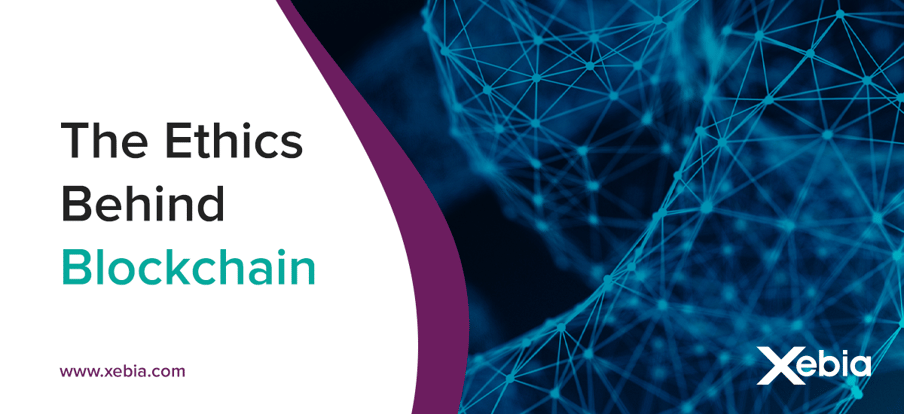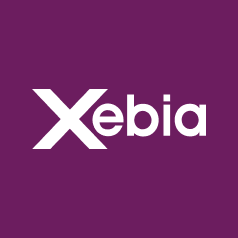Blockchain is currently one of the most rapidly expanding technologies. Next to, for example, artificial intelligence, it’s continuously reshaping how many industries operate. However, since blockchain is strongly linked to cryptocurrencies, it’s sometimes intuitively associated with unethical operations. So, is this view valid (at all)?
The debate about the ethical side of blockchain started gaining traction in 2019. Several experts, both from the technical and non-technical world, argued that since blockchain is a technology that is expected to make a significant difference in society, then it deserves its own field of ethics. After all, from that perspective, other important technologies – including artificial intelligence (AI), biotechnology, or nuclear technology – were already being studied in detail for years.

But First – What is Blockchain, Exactly?
Blockchain has been around for more than 10 years now. Yet, for most people, its actual definition remains shrouded in mystery.
In its essence, blockchain is a database that is shared across a network of participants with a computer. Each of those participants holds an identical copy of this database. The database content is available to every participant at a moment in time. Blockgeeks offer a good analogy that depicts how blockchain actually works.
“Picture a spreadsheet that is duplicated thousands of times across a network of computers. Then imagine this network is designed to regularly update this spreadsheet and you have a basic understanding of the blockchain”.
As a result, the database isn’t stored in any central location, which makes it harder to hack. It can exist in millions of places simultaneously. To tamper with its content, an entity would need to control more than 50% of the network computing powers.
Blockchain Ethical Considerations
Commentators usually name two important ethics problems that could theoretically deem blockchain unethical. These issues are:
- meeting sky-high expectations, and
- the overall accountability.
Let’s take a closer look at these arguments and consider if there’s any truth to them.
Meeting Expectations
From the ethical perspective, blockchain evangelists should be careful not to over-promise in terms of what the technology can deliver.
This may seem like a trivial point, especially in the era of aggressive marketing and expansive business operations. However, since blockchain is a technology and not a product per se, it should be subject to more detailed scrutiny.
If you feel this argument isn’t very strong, consider the following analogy by Dr Simon Longstaff.
Longstaff argues that blockchain, or any new technological field, can be compared to medical research. In both cases, scientists and technologists have a strong urge to announce “breakthroughs” – which, after some time or upon closer inspection are no breakthroughs at all. There can be various reasons for that – money, ego, group pressure; however, the outcome remains the same.
And this over-hype doesn’t only create disappointment (and distrust in research) but can also hurt the gullible. Especially if they invest a lot of money as a result.
However, this universal (but overall valid) point is arguably the lesser of blockchain’s two major ethical challenges.
Lack of Accountability
Blockchain promises several things: security, privacy, greater efficiency, and integrity – a result of removing the risk that arises out of dependence on just one or a few nodes of authority. Ethics.org.au indicate that at least some of the appeal of blockchain is its “anti-authoritarian” character.
And the latter creates accountability problems. After all, if something goes wrong, or a crime will be committed, who should be deemed responsible if nobody is ultimately responsible?
According to ethic’s commentators, blockchain’s nature undoubtedly creates risks of criminal activity. With the asymmetry of power – like bargaining power, information, kinetic force, or more – blockchain might enable “transactions” that are the product of force, fear, and fraud.
With mediating, authoritarian institutions, potential supervision provides at least some way to stop misuses and limit exploitation or criminal activity. On a side note, just imagine how portals like Facebook or YouTube would look like if they were solely in the hands of their communities. And this blockchain independence creates concerns.
Rhys Lindmark, head of community and long-term societal impact at MIT’s Digital Currency Initiative argued that especially from the perspective of cryptocurrency, this fear is real. Since blockchain enables creating leaderless, decentralized organizations, the matter of responsibility is unclear. In public blockchains – for example, Bitcoin – the network’s shared software rules are supposed to automatically sort out what behaviour is allowed.
In opposition to this, Lindmark asks – what if a user exploits the protocol to their benefit without actually breaking the rules? Is this activity unethical, then? And since big corporations – like the previously mentioned Facebook – were proposing a certain shift in the nature of money, how might this influence the politics and power dynamics?
Blockchain Isn’t Only Cryptocurrencies
However, considering the above arguments, it’s important to point out that blockchain isn’t only cryptocurrency. Although the blockchain technology was indeed initially invented to serve as a public transaction ledger of bitcoin, it quickly outgrew its primary purpose.
Right now, bitcoin remains the most common association of blockchain. Yet it’s not the technologies singular use case. Even a quick glance at Wikipedia’s blockchain entry provides several other use examples. Among them are financial services, smart contracts, games, energy trading, the supply chain, anti-counterfeiting, healthcare, or logistics.
Logistics is an especially interesting example.
As Coinspeaker explains, the supply industry has been riddled with problems since the early 2000s. The main issues include a lack of supply chain visibility, security risks, a shortage of qualified workers and rising customer expectations. Overall, these problems contributed to multiple millions of dollar losses at many major companies. And blockchain is a way to solve (or at least limit) them.
From the perspective of these non-cryptocurrency uses, the potential problem of a lack of accountability fades. If, for example, a bank would be to adopt blockchain in their operations, the responsibility for potential wrongdoings would fall on them.
That’s why, in our opinion, it’s so important to make the use case distinction before starting a more detailed discussion.
The Future
One of the potential solutions to the overarching issue of accountability is introducing a set of universal guidelines. And, to not overpromise, evangelists should try to present the technology’s potential as closely to the truth as possible.
And what’s your opinion on this issue? Do you agree with the discussed main ethical concerns?
Cited sources:
Why its time to start talking about blockchain ethics/





